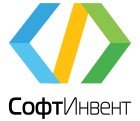Continuous Professional Development: From Classical to Corporate University
Knowledge in information technologies sphere lose relevance very quickly. According to empirical observation of Gordon Moore — the number of the transistors placed on a crystal of integrated scheme doubles each 18-24 months. Another empirical observation claims that about half of expert knowledge in the IT sphere becomes outdated for the same period.
We invite you to submit reports, if you:
- are ready to share the experience of organization of continuous development staff in company
- know how to develop employees ability and desire to study
- have to adapt new knowledge fast and are ready to share it
- create and develop set of the flexible educational tools (training centers, youth schools, hackathons) for fulfilling the task student’s education
- offer new effective educational programs for students
Related proposals
- The Unsolved Problems of Distance Education
- Liberal Arts in a Digitally Transformed World: Revisiting a Case of Software Development Education
- PictoMir – how and why we teach in-text programming to preschoolers, schoolchildren and students of pedagogical universities
- Developers’ growth and education system in an outsourcing company: our experience
- Knowledge Management in Kaspersky Lab
- Developers vs degree How an IT company can help or distract the students from getting their degree
Topic Supervisor

Igor Odintsov
RSC Group
Igor Odintsov – head of the Department of research in the Group of companies RSK.
From 2004 to 2015, he worked in Intel’s branch in St. Petersburg. Since 2010 – Manager of University and academic projects of Intel in Russia, and before that led the project to develop a system to support distributed computing Grid Program Intel Environment.
From 1992 to 2004 he worked as technical leader and project Manager in the development of compilers in the company “Elbrus MCST” under contract with “Sun Microsystems, Inc.”.
More than 25 years teaching at the mathematics and mechanics faculty St. Petersburg state University. Igor delivered courses “Operating systems”, “Languages and systems of programming”, “Databases”, “Managing software development”, “Psychology of programming”, etc.
He is an author of the textbook “Professional programming. A systematic approach” and more than 50 publications.


























